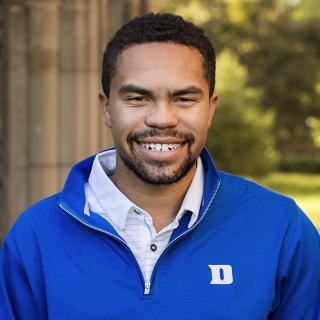In healthcare, developing a new treatment is often half of the battle. The other half lies in delivering these treatments to those communities who need them the most. Coordinating care delivery is the goal of NC Integrated Care for Kids (InCK), an integrated pediatric service delivery and payment platform looking to serve 100,000 kids within five counties — Alamance, Orange, Durham, Granville, and Vance — in central North Carolina. The project is a collaborative effort between Duke, UNC, and the NC Department of Health and Human Services (DHHS) funded by a federal grant from the Centers for Medicare and Medicaid Services (CMS). The program’s executive director is Dr. Charlene Wong (MD, MSPH), a Duke researcher, physician, and professor who leads an interdisciplinary team of researchers and policy experts as they explore ways to reduce costs via integrating care for North Carolina youth enrolled in Medicaid and Children’s Health Insurance Program (CHIP).

The five counties that are part of NC InCK
I recently had the opportunity to speak with two of InCK’s service partners: Dr. Gary Maslow (MD, MPH) and Chris Lea (Duke ’18). Both work within the Behavioral Health group of InCK, which seeks to use behavioral health expertise through collaborative care and training providers to help support pediatric care. Maslow, a professor at the Duke Medical School, has focused heavily on child and developmental psychiatry throughout his career. Having entered medical school with a desire to work in pediatric hematology, Maslow recalls how a conversation with a mentor steered him in the direction of behavioral health. At the time, Maslow was part of the Rural Health Scholars program at Dartmouth College; while discussing his aspirations, one of his professors asked him to consider conditions outside of cancer, leading Maslow to consider chronic illness and eventually child psychiatry. “Kids have other problems,” Maslow’s professor told him.


When looking at healthcare networks, especially those in rural areas in North Carolina, Maslow noticed a disaggregated service and payment network where primary care providers were not getting the necessary education to support the behavioral health needs of children. His work with Lea, a third-year medical student at Duke, has centered around looking at Medicaid data to understand provider distribution, medication prescription, and access to therapy based one’s area of residence. Lea’s path to NC InCK began as an undergraduate at Duke, where he obtained a B.S. in psychology in 2018. As he explains, mental health has been a vested interest of his for years, a passion reinforced by coursework, research at the Durham VA Medical Center, and NC InCK. He discussed the important of appropriate crisis response, specifically how to prepare families and providers in the event of pediatric behavioral health crises such as aggression or suicidality, as critical in improving behavioral health integration. These safety plans are critical both before a potential crisis and after an actual crisis occurs.
Two main goals of Maslow and Lea’s work are to increase the implementation of safety plans for at-risk youth and expand follow-up frequency in primary care settings. The focus on primary care physicians is especially critical considering the severe shortage of mental health professionals around North Carolina.
The behavioral health group is but one subset of the larger NC InCK framework. The team is led by Chelsea Swanson (MPH). Other collaborators include Dr. Richard Chung (MD), Dan Kimberg, and Ashley Saunders. NC InCK is currently in a two-year planning period, with the program’s launch date slated for 2022.

